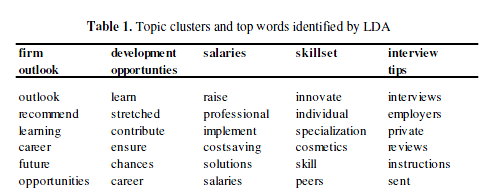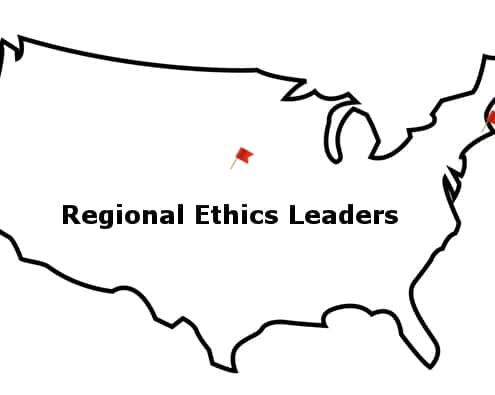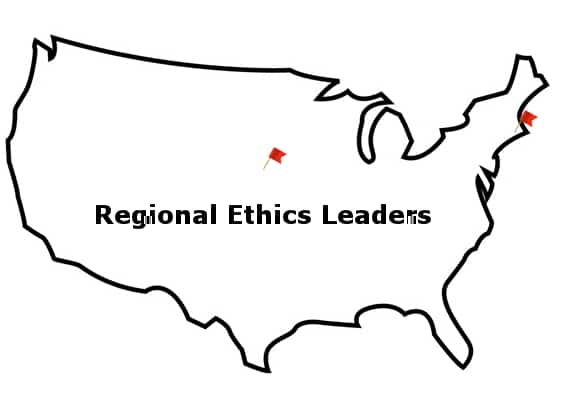Tag Archive for: Culture

Taking the Pulse of Employee Satisfaction to Predict Future Earnings
Blog Do miserable employees serve as harbingers of a drop in their company’s stock price? What is the true value of an employee’s smile?
Do miserable employees serve as harbingers of a drop in their company’s stock price? What is the true value of an employee’s smile?
Researchers Andy Moniz from the Rotterdam School of Management and Franciska de Jong of Erasmus University addressed these questions at a session based on their recent paper in Advances in Informational Retrieval as part of the Economics of Culture Conference put on by the New York Federal Reserve in November 2015. The authors have taken a new approach to an enduring question within business: What is the best way to evaluate corporate culture?

Reforming Culture and Behavior in the Financial Services Industry Conference
Blog The Reforming Culture and Behavior in the Financial Services Industry Conference last week at the Federal Reserve Bank of New York* demonstrated that today’s financial industry understands the need for culture and behavior change in order to run a more ethical company. After spending many years focused on implementing compliance programs, there is now an complementary understanding of the role of ethics and its important function in shaping culture and reputation. The financial industry, however, must confront the bigger challenge of finding ways to actually change behavior.
The Reforming Culture and Behavior in the Financial Services Industry Conference last week at the Federal Reserve Bank of New York* demonstrated that today’s financial industry understands the need for culture and behavior change in order to run a more ethical company. After spending many years focused on implementing compliance programs, there is now an complementary understanding of the role of ethics and its important function in shaping culture and reputation. The financial industry, however, must confront the bigger challenge of finding ways to actually change behavior.

Ethics and the City: Regional programs for success
Blog Ethical systems design is rooted in a systems-approach. We at Ethical Systems generally look at these at 3 levels: 1) personal ethics; 2) organizational ethics; and 3) the national culture and legal/regulatory environment. It is the interplay between these levels that creates a self-sustaining ethical culture.
Ethical systems design is rooted in a systems-approach. We at Ethical Systems generally look at these at 3 levels: 1) personal ethics; 2) organizational ethics; and 3) the national culture and legal/regulatory environment. It is the interplay between these levels that creates a self-sustaining ethical culture.
Within the context of the third level, there is an emerging trend, where ethics and culture are being used to promote regional economic development. Ethics is taking center stage in two cities- Boston and Omaha- and galvanizing people to come together to engage in discussion and identify solutions.

Very Worrying: VW, Leadership and Ethical Culture
BlogGuest post from Dennis Gentilin of the National Australia Bank and author of the forthcoming book, “The Origins of Ethical Failures”
 As we all know, last week the car manufacturer Volkswagen admitted to installing software in over 11 million of their diesel engine cars that was designed to cheat emission tests. At worst, some commentators have suggested that Volkswagen are responsible for the premature death of people with respiratory conditions. At best, it is extraordinarily deceitful and unethical conduct.
As we all know, last week the car manufacturer Volkswagen admitted to installing software in over 11 million of their diesel engine cars that was designed to cheat emission tests. At worst, some commentators have suggested that Volkswagen are responsible for the premature death of people with respiratory conditions. At best, it is extraordinarily deceitful and unethical conduct.
It is highly unlikely that a scandal of this magnitude is the work of a handful of rogues. Rather it points to a systemic disrespect for principled conduct at numerous levels of the organization. No doubt the pending investigation will uncover failures in governance and compliance. However, as with all corporate scandals of this nature, my hypothesis is that at least one (or some) of the following five factors would have been at play:

Did You Get the Memo? Confronting Corporate Wrongdoing
Blog After the financial crisis of 2008 and the current, ongoing instances of large fines levied against banks and other financial companies, many people continually bemoan why penalties have not also included jail time and prosecution of executives who have behaved unethically. The message has finally reached the highest levels of government and change is on the horizon.
After the financial crisis of 2008 and the current, ongoing instances of large fines levied against banks and other financial companies, many people continually bemoan why penalties have not also included jail time and prosecution of executives who have behaved unethically. The message has finally reached the highest levels of government and change is on the horizon.
In a speech at NYU Law last week, hosted by the school's Program on Corporate Compliance and Enforcement, Deputy Attorney General Sally Quillian Yates presented the memo covering a new Department of Justice initiative designed to fight corporate fraud and other misconduct by going after individuals who perpetrated the wrongdoing. In addition to punitive actions against an organization (what many see as a macro-level punishment that does little to deter misconduct on the micro, or personal, level), the DOJ will now turn its considerable resources to affecting change at the source, i.e. those that engage in personal malfeasance under the guise of doing their job.

Interested in an Ethical Culture? Build an Ombuds Program
BlogGuest post by John W. Zinsser, Pacifica Human Communications, LLC.
 There is a mechanism for employees of all levels to safely (without fear of retaliation) raise any concern or ask a needed question — an organizational ombuds program.
There is a mechanism for employees of all levels to safely (without fear of retaliation) raise any concern or ask a needed question — an organizational ombuds program.
Properly constructed and executed organizational ombuds programs provide those who access the function a place to:
- Consider possible solutions;
- Navigate the complexity of today’s organizations;
- Sound out an idea; and
- Build a plan of action to address a situation.
As a result of being involved in these activities, the ombuds program is positioned to raise leadership’s awareness and understanding of key issues the organization faces.
